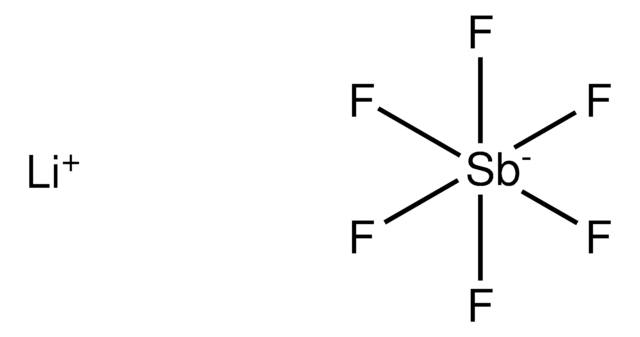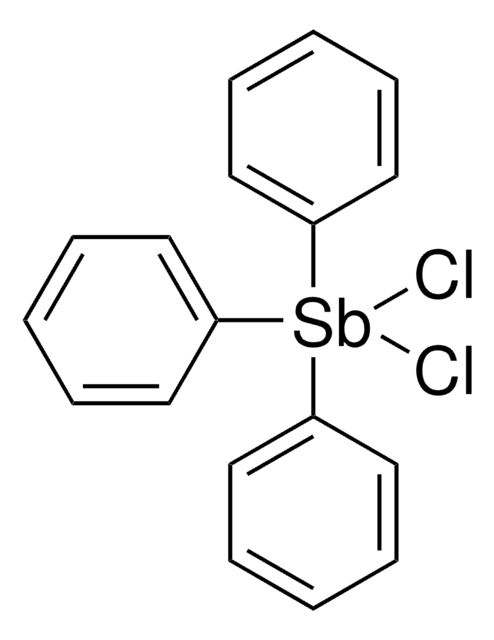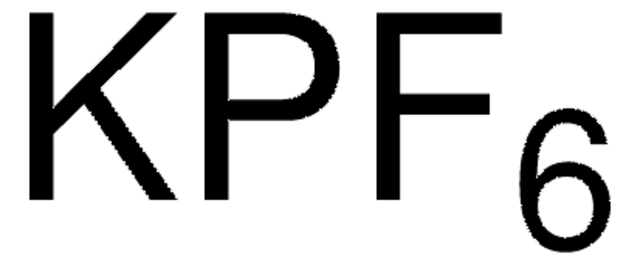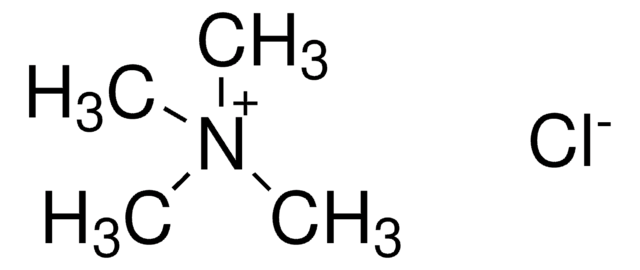238007
Potassium hexafluoroantimonate(V)
99%
Synonym(s):
Potassium antimony fluoride, Potassium hexafluorostibanuide
About This Item
Recommended Products
Quality Level
Assay
99%
form
powder
reaction suitability
reagent type: catalyst
core: antimony
bp
1505 °C/1 atm (lit.)
mp
846 °C (lit.)
SMILES string
[K+].F[Sb-](F)(F)(F)(F)F
InChI
1S/6FH.K.Sb/h6*1H;;/q;;;;;;+1;+5/p-6
InChI key
LQKKGPUEJBHVHZ-UHFFFAOYSA-H
Looking for similar products? Visit Product Comparison Guide
Signal Word
Warning
Hazard Statements
Precautionary Statements
Hazard Classifications
Acute Tox. 4 Inhalation - Acute Tox. 4 Oral - Aquatic Chronic 2
Storage Class Code
6.1C - Combustible acute toxic Cat.3 / toxic compounds or compounds which causing chronic effects
WGK
WGK 2
Flash Point(F)
Not applicable
Flash Point(C)
Not applicable
Personal Protective Equipment
Choose from one of the most recent versions:
Already Own This Product?
Find documentation for the products that you have recently purchased in the Document Library.
Customers Also Viewed
Articles
Innovation in dental restorative materials is driven by the need for biocompatible and natural-appearing restoration alternatives. Conventional dental materials like amalgam and composite resins have inherent disadvantages.
Our team of scientists has experience in all areas of research including Life Science, Material Science, Chemical Synthesis, Chromatography, Analytical and many others.
Contact Technical Service











